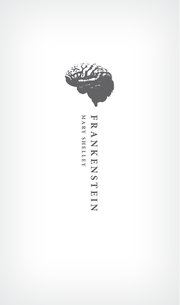Book Review: Frankenstein or The modern Prometheus (uncensored 1818 edition)
by Mary Wollstonecraft Shelley

- Title: Frankenstein or 'The Modern Prometheus': The 1818 Text
- ISBN: 9780198814047
- Format: Hardback
This is a book I've had a steadfast disinterest in my entire life. Horror, old horror and a subject that has been covered ad nauseum in pop culture - it simply held no interest.
That was until I heard Radio National's The Science Show's special Frankenstein - It’s Alive!!! on the 1818 edition being re-released for the 200th anniversary of it's publication. That program shifted this book from "pulp fiction" to "must read" in my mind. This episode of The Science Show is worth a listen on it's own and is one of my favourite pod casts.
Yes, the first version is in 1818, and there were several more of that first edition, hardly altered at all. And then there's the edition in 1831 which she'd really seriously revised, and she'd really changed the impact of it.
... And really the changes that were made there were because some critics and some readers obviously were rather shocked by the science, the interest in the life issue. They thought the whole thing was dynamite really, they thought the public shouldn't really be given this plot and they shouldn't really be encouraged to think about it, so that each version of it is really a censored version of it after that. The novel gets rather more like the stage plays. She realised that that was the way critics anyway and the respectable classes wanted the plot to be interpreted.
This piqued my interest in the novel for the first time.
One of Mary's personal anxieties that Fiona mentions had been the loss of her first-born child, born prematurely and living for only a few days. She wrote in her journal:
Dreamt that my little baby came to life again, that it had only been cold and that we rubbed it before the fire and it lived.
and this added a personal connection for me between the author and the material. One of my favourite authors, Philip K. Dick described himself as a philosopher who used novels to explore his philosophies. I'd come to view this book in a similar light.
Thus armed, I convinced the local library of the importance of having this particular edition in their collection and waited patiently for it to arrive.
This edition proved to be a rewarding and surprising read. The antiquated story telling devices take a little getting used to, along with the spelling of many words and words that have dropped from modern usage in the 200 years since it was first published.
This original edition, as the podcast expounded upon, is nothing like what we've become accustomed to in modern pop culture but is a much more textured, thought provoking read. It may have been horror to an audience in 1818 but for me, the author is clearly exploring interesting philosophical question and that's where my attention was firmly fixed.
I highly recommend reading this original edition of this work. It's a surprisingly short, fast paced and thought provoking read.
I was mistaken to have avoided it for so long.